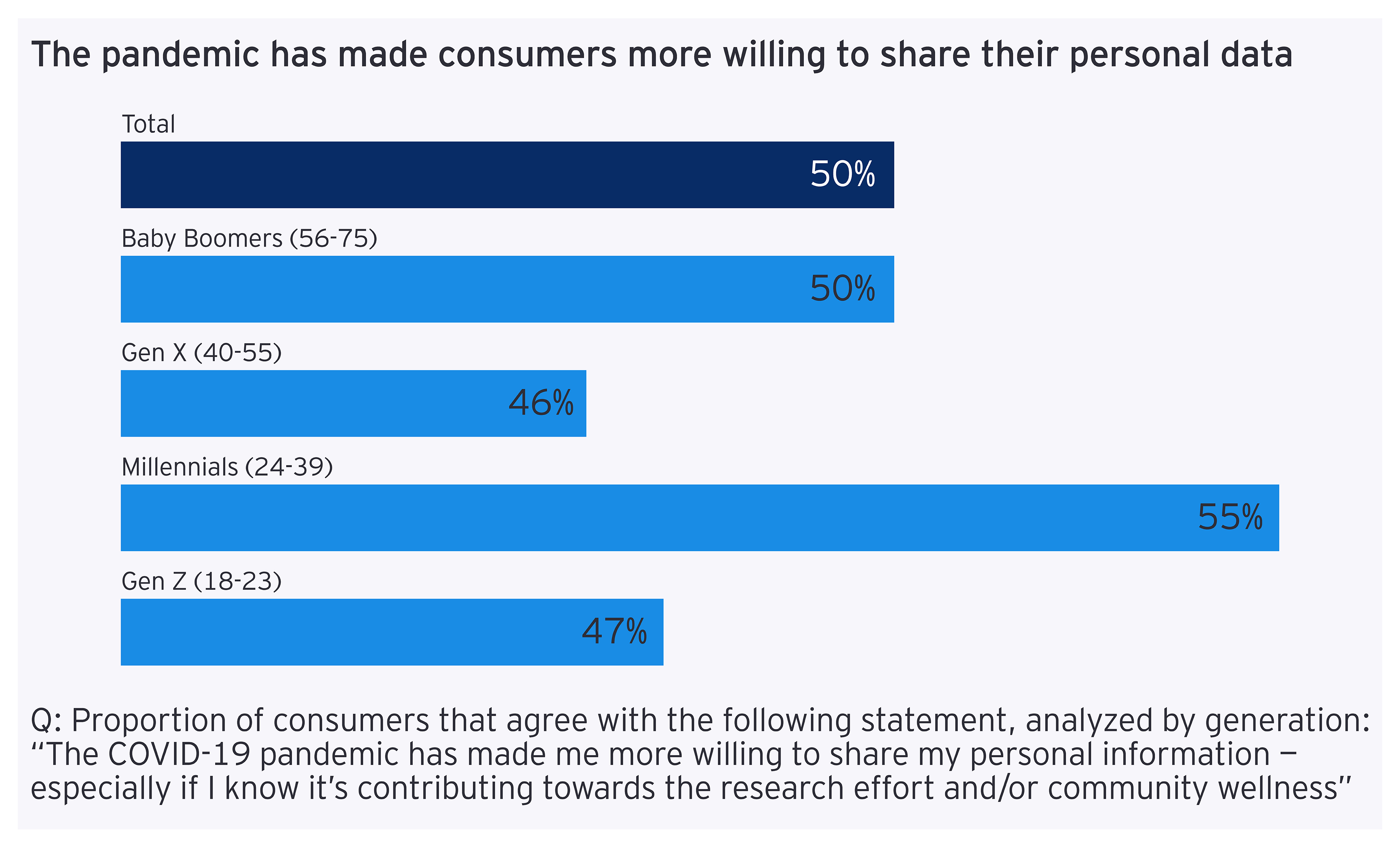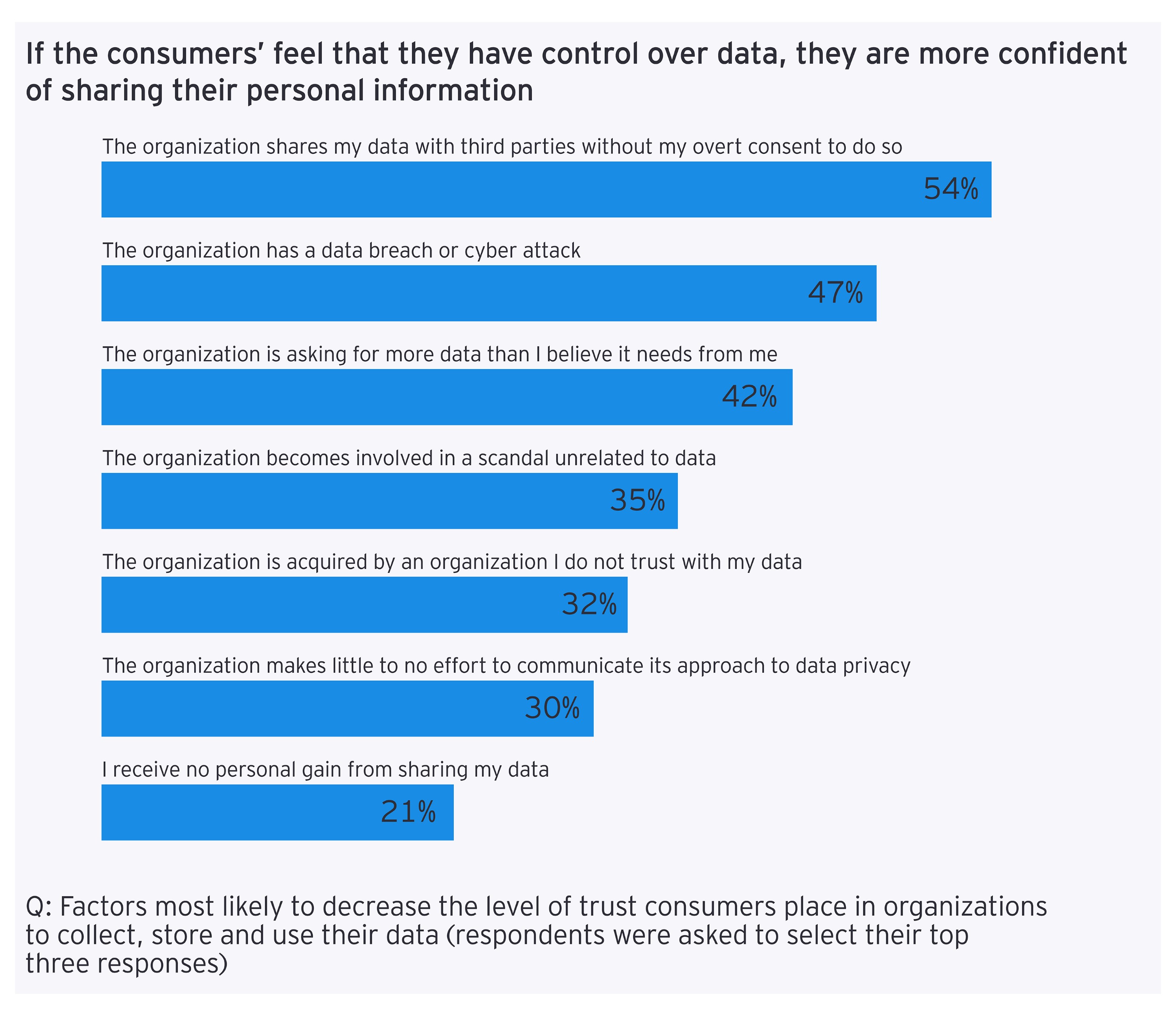Most global organizations have met the challenges of compliance with the European Union’s GDPR. Now, over 100 countries, states and cities are in effect enacting their own “local GDPRs”. These will create a global maze of regulations and compliance. Data compliance and integrity will no longer be optional — it is fast becoming the law of the land.
Most global organizations have met the challenges of compliance with the European Union’s GDPR. Now, over 100 countries, states and cities are in effect enacting their own “local GDPRs”. These will create a global maze of regulations and compliance. Data compliance and integrity will no longer be optional — it is fast becoming the law of the land.
In the article “How to prepare for global data compliance,” EY examines what emerging data privacy regulations mean for the global enterprise – in higher costs and increased compliance risk.
The upside of trust – monetizing the trusted data relationship
Here are four examples of companies that have earned the trust of their customers — and four models for monetizing the trusted relationship.
1. Super-personalization
A relationship built on trusted data goes beyond just a customized webpage. A global home furnishings retailer integrated image recognition and augmented reality into its annual printed and digital catalogs. Customers then provided highly personal data on their personal tastes, past purchases, and images from within their homes.
Based on this data, customers could use mobile devices to scan the catalog and insert products into their homes — reviewing styles, colors and size against digital replicas of their residences. This allowed the catalog readers to make informed purchases, resulting in higher customer satisfaction and fewer returned sales. Plus happier customers.
2. Creating an ecosystem of products and services
A leading agricultural machinery company created a platform for technology-enabled farmers. It included — by opt-in permission — growers’ data on machinery use, crop selection, planting and harvesting dates, and uses of different seeds, fertilizers, and pesticides. This was combined with external data such as weather conditions, transportation costs, and commodity market pricing, and internal data on farm machinery use and maintenance.
With permissioned data as its foundation, the company created an ecosystem of financing sources, commodity buyers, and seed, pesticide and fertilizer producers that provide “members” with lower cost products and services. The trusted ecosystem also increased sales of the company’s tractors, irrigators and combines.
3. Creating a whole new data-driven company
A global building controls manufacturing company had long been the leading provider of rooftop ventilation systems for office buildings and factories. They digitized these units, creating real-time data feeds on customers’ energy consumption and daily usage patterns. With customers’ permission, this trusted supplier combined user and energy utility data on peak market energy pricing.
The result was a whole new digital business. The manufacturer launched an energy management division, authorized by clients to buy-and-sell energy on behalf of its customers, and earning its revenue on the savings. This also increased the sale of units, and generated “sticky” relationships in what had been a commodity market.
4. Trusted data for the public good
The resolution of the COVID-19 crisis will depend on data — data that tracks infection patterns, supports contact tracing, and confirms vaccination rates and efficacy. These analytics depend on disclosure of some of the most sensitive personal data, including health diagnoses and personal relationships.
Recent EY research, Has lockdown made consumers more open to privacy?, has found that consumers are willing to sacrifice their private data for the public good. In a survey of over 1,900 global consumers, 50% agreed that “the COVID-19 pandemic has made me more willing to share my personal information — especially if I know it is contributing towards the research effort/community wellness.” Indeed, it is difficult to see how the pandemic will be stopped without this kind of altruistic spirit.
In conclusion
Many pundits claim that data will be the next source of competitive advantage. But what advantage will you have if your customers do not give you permission to use it?
Companies that are transparent about the information they gather, give customers control of their personal data, and offer fair value in return for it will be trusted and will earn ongoing and even expanded access. Those that conceal how they use personal data and fail to provide value for it stand to lose customers’ trust—and their business. The future belongs to the trusted company with trusted data.
Related article
Summary
As it turns out, consumers are willing to share data — if the companies are transparent about it. Once the brands get the trust of their customers, they would be able to monetize it and glean other benefits from it.




